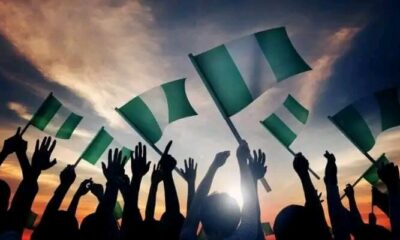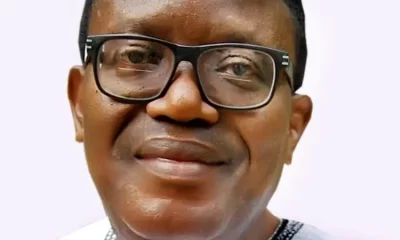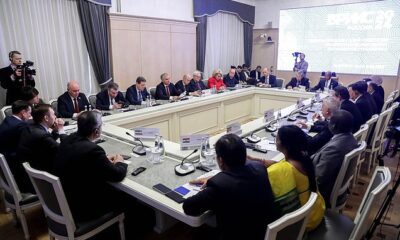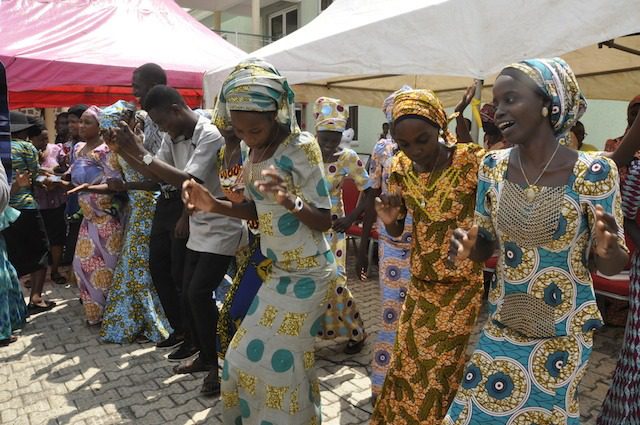National Issues
Cracks on the Wall of National Integration -By Ebere Onwudiwe

As a part owner of this magnificent house called Nigeria, whenever you see a tiny crack on the wall, how do you feel? At first, it may not appear threatening. And in fact, it may not be threatening because not all cracks on the wall of your house indicate foundational failure. Not all cracks are as big and huge and destructive as Boko Haram, for example. Still, a responsible home owner doesn’t wait for the biggest gaping hole to appear on the wall of his beautiful home. He should be concerned enough to look into that crack, just in case. It may be the crack is something you can fix with small cement, a very negligible investment. But when the cracks begin to proliferate you must pay attention. And here in this beautiful castle of ours (a man’s home is his castle) are we not beginning to see a propagation of a variety of cracks of all sizes?
Are we not witnessing a variety of violent groups in all parts of this country: the Ecomog in Borno, the Kalare in Gombe, the SaraaSuka in Bauchi, the MEND, the Niger Delta Vigilantes, and the Nigeria Delta Volunteer Force in Niger Delta, Indigenous People of Biafra, the Bakassi Boys and the Movement for the Actualization of the Sovereign State of Biafra (MASSOB) in the South East, NGel Women – an all-female militia in Plateau State and the Oduo People Congress in the Southwest (OPC) and the northern equivalent, the Arewa People’s Congress (APC.)
Yet, we should be concerned primarily with the political, constitutional and policy failures of our political system that lead to the formation of these militant groups by Nigerian citizens. That is to say that we must pay attention to those things that produce frustrated citizenry meaning those groups of Nigerians that find no percentage in the idea of unity or national integration.
Political integration of Nigeria really means the political amalgamation of her ethno-linguistic groups. So, here we are talking about integration at a much larger group level. The groups have to surrender their basic existence as ultimate political entities, political communities, and political authorities to an upper state level for the purpose of national peace.
In and of itself, I do not think that ethnic groups or nationalities are a cog on the wheel of progress of integration. However, a derivative of any of these terms known as tribalism constitutes a deep crack on the wall of national unity and political integration. Tribalism is destructive of unity and integration because it results when behaviour and attitudes stemming from strong loyalty to one’s own ethnic group combine with a strong negative feeling for people outside that group to produce a toxic level of nepotism. When this feeds identity politics, it becomes more dangerous.
Since self-rule, most of Nigeria’s political parties have had ethnic centres of gravity. From the Nigerian Youth Movement, founded in 1936 and dominated by southern ethnic groups to the early independence political parties including the Northern Peoples Congress, NPC, the National Council of Nigeria and the Cameroons, NCNC, and the Action Group, AG, ethno-sectional identities have marked the character of Nigeria’s political parties.
If you consider that political parties are formedto win elections and take over the control of the government, you will begin to understand why ethnicity and its offspring, tribalism, are so fierce in Nigeria. It is not so much that the different ethnic groups in Nigeria dislike each other; it is that tribalism is an instrument of group resource acquisition at the centre of national government. Therein lays its destructive potential for national integration.
Politics is everything in Nigeria because the group that controls government controls jobs in the public sector, the reason that ideology or issue politics has never taken root in Nigeria despite the great efforts of the likes of Mallam Aminu Kano and his breed. When the sharing of national cake is the national priority, highfalutin ideologies will remain wet. This is what makes ethnic identity politics and tribalism destructive of national integration because when deployed in government allocation of values including jobs and federal presence, non-favored groups complain about marginalization, and worse. They begin to feel like outsiders and such a feeling is not and cannot inspire political integration and national unity.
What I find most divisive in ethnic identity politics is a certain self-authenticating vehemence frequently exhibited without proof. This is most dangerous affront to national unity that is today dangerously latched to the tongues and pens of our political and intellectual elites who continue to be addicted to the old ways of ethnic identity politics. This did not lead to one Nigeria in the past, it led instead to the tragedy of Biafra. Still, nothing seems to be changing.
Our careless treatment of citizenship in Nigeria may be the deepest crack on the wall of national integration. The mother of all affronts to the value of citizenship is the settler-indigene dichotomy. To abolish this dichotomy and give every Nigerian a sense of belonging, I suggest that we borrow a page from the constitution of other countries with acclaimed provisions for citizenship in their constitutions. The US Constitution comes to mind. If we followed that example, our constitutional provision for citizenship would read like this:
All persons born, naturalized or registered in Nigeria and subject to the jurisdiction thereof are citizens of Nigeria and of the State wherein they reside. No State shall make or enforce any law which shall abridge the privileges or immunities of citizens of the United States; nor shall any State deprive any person of life, liberty, or property, without due process of law; nor deny to any person within its jurisdiction the equal protection of the laws.
This will definitely destroy the issue and centrality of the “indigene/settler” question versus citizen rights. The “indigene/settler” question works against the spirit of integration. Real integration of the peoples of this country requires that we boldly confront this very divisive issue urgently and strategically.
All Nigerians should secure citizenship rights in Nigeria. Let’s face it, the “indigene” and the “settler” dichotomy is a fundamental element of marginalization for millions of Nigerians who live in states that consider them settlers in their own country. Of what benefit is Nigeria to a Nigerian who pays tax in a state in the country where he resides, and participate in the communities in which he is resident, but where he is not allowed to equally enjoy the coverage of the rights of full citizenship?
The issue of citizenship is the core element in what is being bandied around as the national question. In fact, it should be the national question! There is no ethnic question. No Igbo question, no Fulani question, no Tiv question, no Berom, Efik, Yoruba or Hausa questions; just a national question because you don’t want to make a people a question. Once you start making a people a question you will soon be looking for answer to that question. And history in this respect makes people worry because in the past when peoples were cast as questions the answers included the final solutions in Germany and in Rwanda for a recent example. So casting a people as a question is a dangerous thing to do in a country where the spectre of ethnicity is a major driver of the citizenship problem.
Ethnicity is in truth the main animator of the “indigene”/ “settler” contradiction as the Jos crises clearly shows. The Jos crises is due to the disagreements between the mostly Fulani “settlers” and the indigenous Berom, Anaguta, and Afizere groups over political representation and attendant citizenship rights. This shows that the settler/indigene issue is a nation-wide crisis that we continue to ignore at our own peril. We must not let it damage us. A Nigerian citizen should be a Nigerian citizen with all the rights and privileges appertaining anywhere in the territory of the Federal Republic of Nigeria. There is no higher measure of national integration.



















